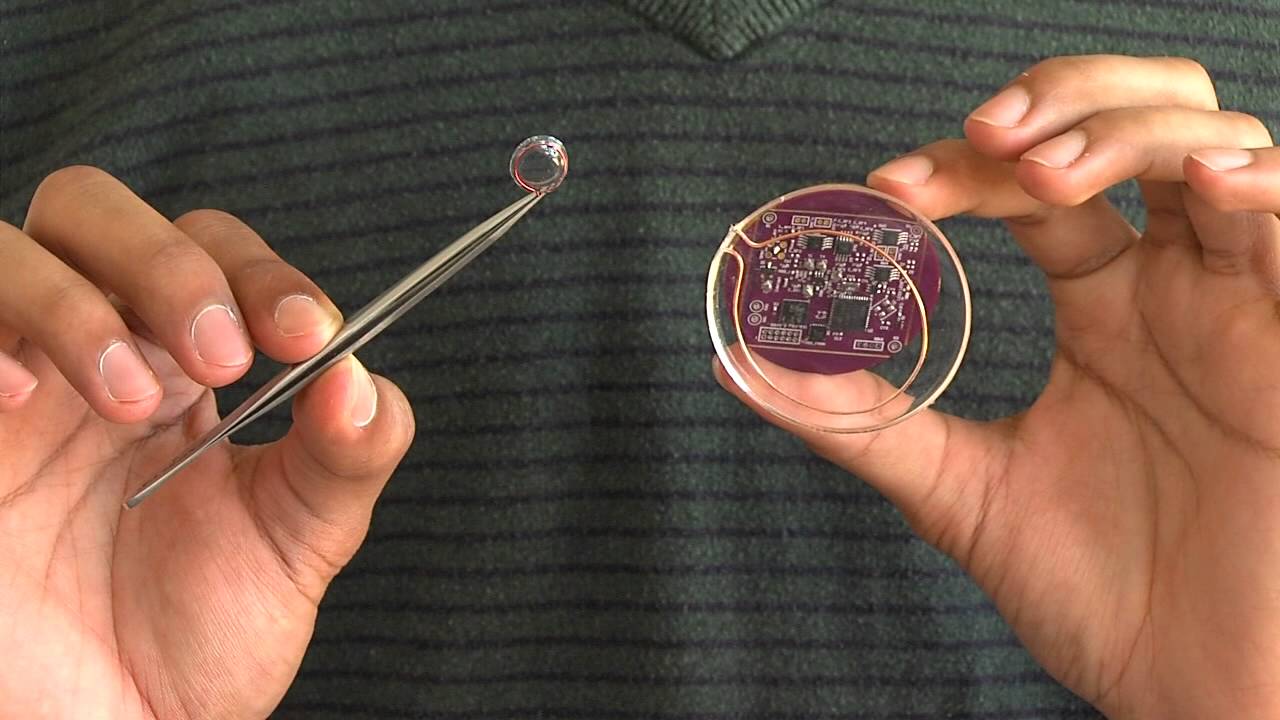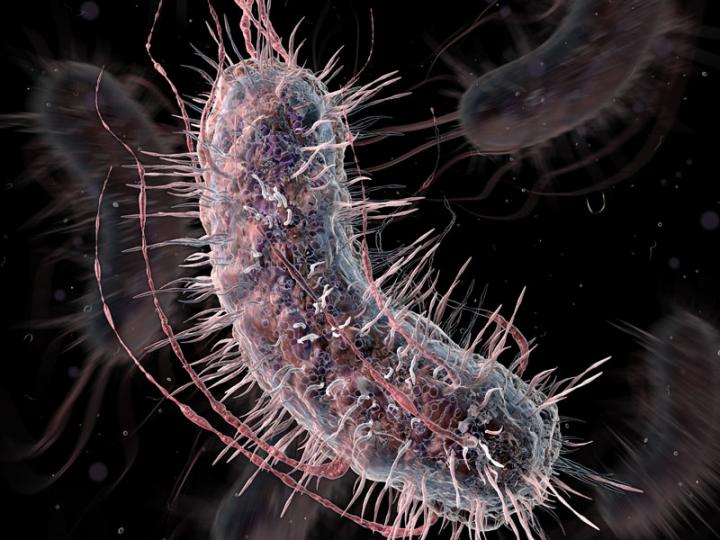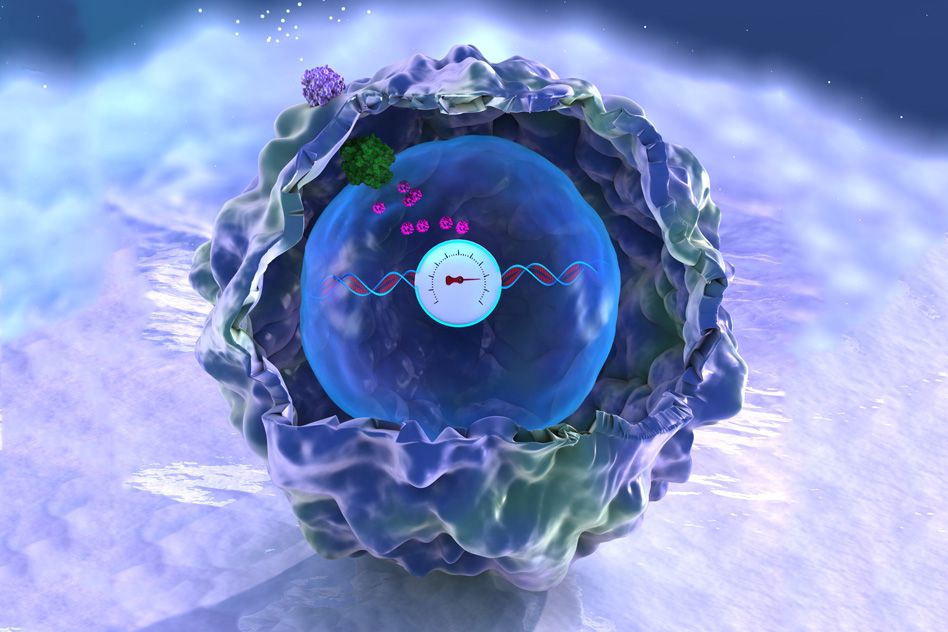Archive for the ‘bioengineering’ category: Page 204
Aug 19, 2016
Creative Peptides Has Released New Discovery in Glycopeptide Synthesis
Posted by Karen Hurst in categories: bioengineering, biotech/medical, government
August 19th, 2016 – Creative Peptides, a professional supplier of peptides manufacturing upon academic, clinical, commercial and government laboratories in diverse applications, has released its efficient Glycopeptide Synthesis service, to help speed up the advance in solid phase methods.
Nowadays, glycopeptides have played a pivotal role in a myriad of organisms and systems, such as biology, physiology, medicine, bioengineering and technology, etc. As is known, synthetic glycopeptides are able to offer an unique frontier for research in glycobiology and proteomics as well as for drug discovery & development, drug delivery & targeting, diagnostics development and biotechnological applications, which also promotes the development of modern biomarker discovery process.
Based on rapid achievements in peptides research, increasing number of scientists are trying to discover more effective methods in modern scientific research, such as deslorelin acetate, aviptadil acetate, Chimeric Peptides, and so on. Technically, the Glycan chains of glycopeptides are involved in numerous biological recognition events, including protein folding, cell-cell communication and adhesion, cell growth and differentiation, as well as bacterial and viral infection. Actually, a framework of probing human implicit intentions for the purpose of augmented cognition has been described at Creative Peptides in recent days, which helps more and more people gain new insights in peptide application.
Continue reading “Creative Peptides Has Released New Discovery in Glycopeptide Synthesis” »
Aug 19, 2016
The Synthetic Biology Era Is Here—How We Can Make the Most of It
Posted by Karen Hurst in categories: bioengineering, biotech/medical, food
We are entering an era of directed design in which we will expand the limited notion that biology is only the ‘study of life and living things’ and see biology as the ultimate distributed, manufacturing platform (as Stanford bioengineer, Drew Endy, often says). This new mode of manufacturing will offer us unrivaled personalization and functionality.
New foods. New fuels. New materials. New drugs.
We’re already taking our first steps in this direction. Joule Unlimited has engineered bacteria to convert CO2 into fuels in a single-step, continuous process. Others are engineering yeast to produce artemisinin — a potent anti-malarial compound used by millions of people globally. Still other microbes are being reprogrammed to produce industrial ingredients, like those used in synthetic rubber.
Continue reading “The Synthetic Biology Era Is Here—How We Can Make the Most of It” »
Aug 19, 2016
Be the first to comment on “Synthetic Biology: We Will Grow Entire Cities Out Of Living Organisms”
Posted by Karen Hurst in categories: bioengineering, biotech/medical, education, environmental, robotics/AI, space travel

Hmmmm.
Technocrat scientists believe they can ‘code’ any kind of future they want, but what about what everyone else wants? These are the overlords of Technocracy who believe that we should just ‘trust them’ to build Utopia. ⁃ TN Editor.
Aug 19, 2016
For the First Time Ever a New Way of Communication Enables “Talking” Between Body Implants and Smartphones
Posted by Karen Hurst in categories: bioengineering, biotech/medical, computing, internet, neuroscience

Luv this.
Smart devices implanted in the body have thus far not been able to communicate via Wi-Fi due to the power requirements of such communications. Surgery is required when the battery in a brain stimulator or a pacemaker needs to be replaced. Not only is this expensive, but any surgery has inherent risks and could lead to complications. It is therefore critically important that the battery life in implanted medical devices be preserved for as long as possible.
Aug 18, 2016
Modifying a living genome with genetic equivalent of ‘search and replace’
Posted by Karen Hurst in categories: bioengineering, biotech/medical, genetics
Researchers including George Church have made further progress on the path to fully rewriting the genome of living bacteria. Such a recoded organism, once available, could feature functionality not seen in nature. It could also make the bacteria cultivated in pharmaceutical and other industries immune to viruses, saving billions of dollars of losses due to viral contamination. Finally, the altered genetic information in such an organism wouldn’t be able to contaminate natural cells because of the code’s limitations outside the lab, researchers say, so its creation could stop laboratory engineered organisms from genetically contaminating wildlife. In the DNA of living organisms, the same amino acid can be encoded by multiple codons — DNA “words” of three nucleotide letters. Here, building on previous work that demonstrated it was possible to use the genetic equivalent of “search and replace” in Escherichia coli to substitute a single codon with an alternative, Nili Ostrov, Church and colleagues explored the feasibility of replacing multiple codons, genome-wide. The researchers attempted to reduce the number of codons in the E. coli code from 64 to 57 by exploring how to eradicate more than 60,000 instances of seven different codons. They systematically replaced all 62,214 instances of these seven codons with alternatives. In the recoded E.coli segments that the researchers assembled and tested, 63% of all instances of the seven codons were replaced, the researchers say, and most of the genes impacted by underlying amino acid changes were expressed normally. Though they did not achieve a fully operational 57-codon E. coli, “a functionally altered genome of this scale has not yet been explored,” the authors write. Their results provide critical insights into the next step in the genome rewriting arena — creating a fully recoded organism.
Aug 18, 2016
Engineers program human cells to store complex histories in their DNA
Posted by Karen Hurst in categories: bioengineering, biotech/medical, genetics
Luv this.
MIT biological engineers have devised a way to record complex histories in the DNA of human cells, allowing them to retrieve “memories” of past events, such as inflammation, by sequencing the DNA.
This analog memory storage system—the first that can record the duration and/or intensity of events in human cells—could also help scientists study how cells differentiate into various tissues during embryonic development, how cells experience environmental conditions, and how they undergo genetic changes that lead to disease.
Continue reading “Engineers program human cells to store complex histories in their DNA” »
Aug 16, 2016
Gary Johnson Wants Driverless Secret Service Cars and a US-Led Gene Editing Revolution
Posted by Zoltan Istvan in categories: bioengineering, biotech/medical, geopolitics, life extension, robotics/AI, transhumanism
My exclusive interview with Libertarian presidential candidate Gary Johnson on some hard science & tech issues, including transhumanism, longevity, AI, and gene editing. This is also my first story for Futurism. For the record, I am trying, along with millions of others, to get Gary Johnson into the Presidentia l debates! No matter who you plan to vote for, it would be good for America to have him in the debates so a third voice is heard:
Libertarian Presidentia l candidate Gary Johnson wants humans to live a lot longer and isn’t worried about AI becoming the Terminator. Here, Futurist Zoltan Istvan gains an exclusive interview with Johnson, who is polling double digits nationally and hopes to be in the Presidentia l debates with Trump and Clinton in October.
Disclaimer: The views and opinions expressed are solely those of the author. They do not necessarily represent the views of Futurism or its affiliates.
Aug 15, 2016
Anti-inflammatory drug reverses memory loss in Alzheimer’s-disease-model mice
Posted by Sean Brazell in categories: bioengineering, biotech/medical, genetics, life extension, neuroscience

Anti-inflammatory drug mefenamic acid completely reversed memory loss and brain inflammation in mice genetically engineered to develop symptoms of Alzheimer’s disease and amyloid beta-induced memory loss, a team led by David Brough, PhD, from the University of Manchester has discovered.
The non-steroidal anti-inflammatory drug (NSAID) drug targets an important inflammatory pathway called the NLRP3 inflammasome, which damages brain cells, according to Brough. This is the first time a drug has been shown to target this inflammatory pathway, highlighting its importance in the disease model, Brough said.
Continue reading “Anti-inflammatory drug reverses memory loss in Alzheimer’s-disease-model mice” »
Aug 15, 2016
Progress toward real life super-soldiers
Posted by Klaus Baldauf in categories: bioengineering, computing, military
For three years ago U.S. Special Operations Command and DARPA announced they had started work on a super-soldier suit called TALOS (Tactical Assault Light Operator Suit) unlike anything in the history of warfare. It is engineered with full-body ballistics protection; integrated heating and cooling systems; embedded sensors, antennas, and computers; 3D audio (to indicate where a fellow warfighter is by the sound of his voice); optics for vision in various light conditions; life-saving oxygen and hemorrhage controls; and more.
It aims to be “fully functional” by 2018. “I am here to announce that we are building Iron Man,” President Barack Obama said of the suit during a manufacturing innovation event in 2014. When the president said, “This has been a secret project we’ve been working on for a long time,” he wasn’t kidding.
In 1999 DARPA created the Defense Sciences Office (DSO) and made Michael Goldblatt its director. Goldblatt saw the creation of the super-soldier as imperative to 21st-century warfare.
Continue reading “Progress toward real life super-soldiers” »














